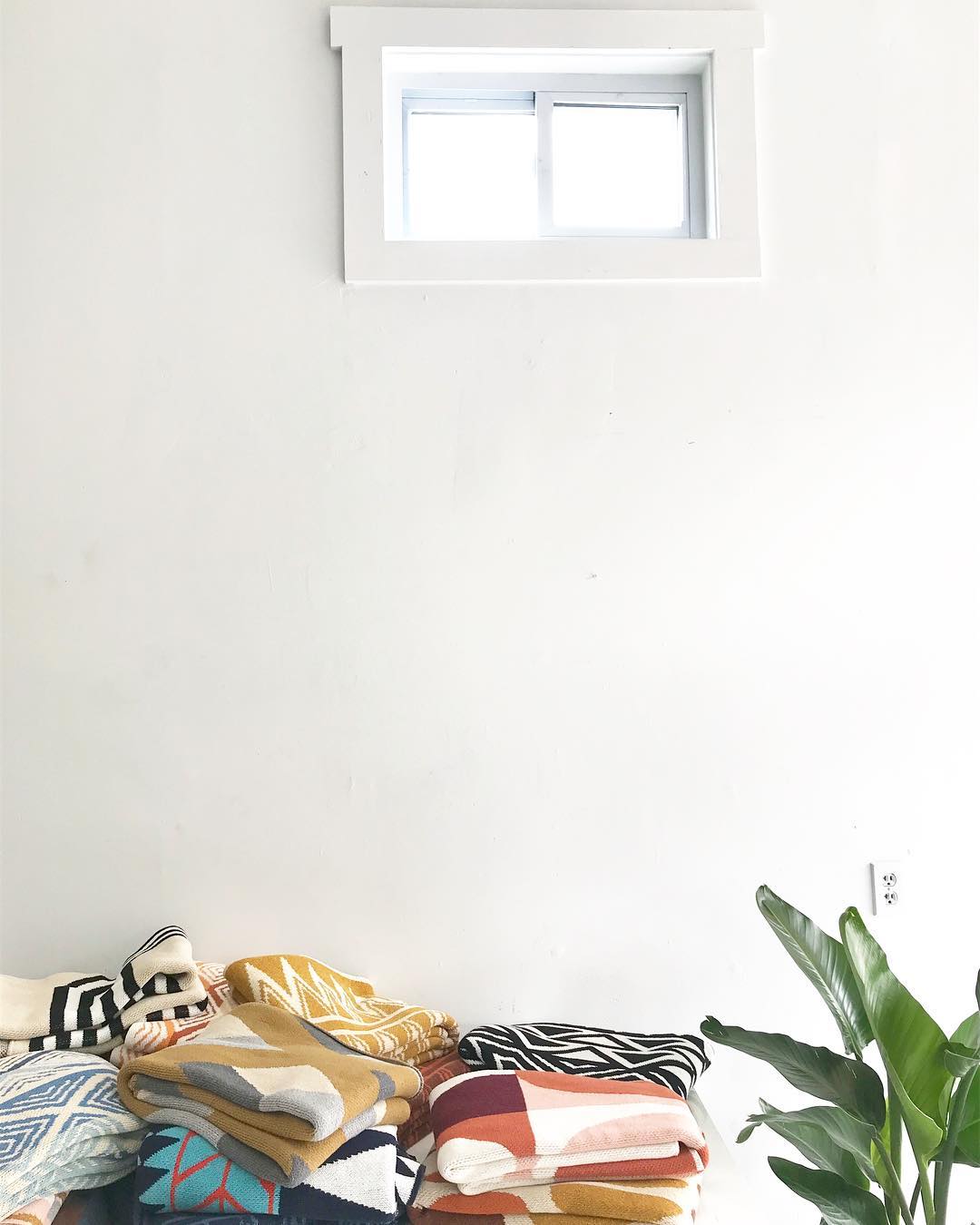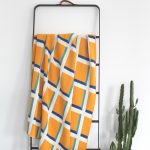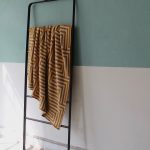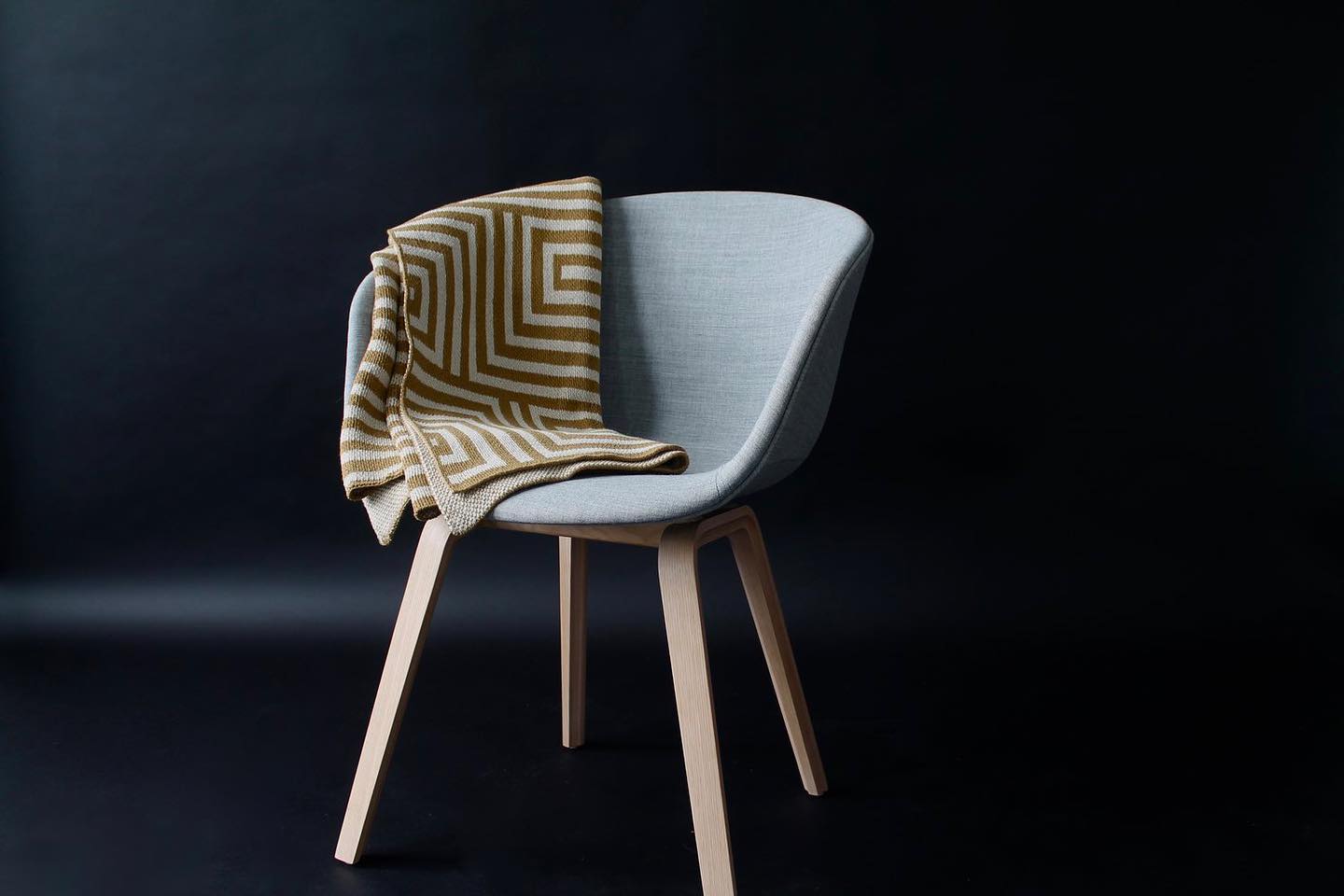While California is a place of year-round sun and pleasant weather, my British heart is well-adjusted to much harsher winters. In the long months of cold, it becomes essential to have a set of cosy items lying around the house, from soft pillows to nice-smelling candles and hot beverages. Creating an ambiance of comfort can make all the difference at home when it’s too cold outside, both physically and emotionally. I love filling my home with beautiful and ethically produced items year-round, but I especially crave fuzzy things that bring me joy when the temperature is on the lower end of 50 degrees. And over the past season, Happy Habitat’s blankets were quite the discovery!
Dedicated exclusively to making blankets and the occasional pillow cover, Happy Habitat was born out of a desire to slow down and create. Its founder Karrie Dean lived a fast-paced life in the advertising industry until she was laid off and found herself in need of a new way of life. Thinking back to her old love for the arts, she started sketching what would later become Happy Habitat, then partnering with artisans to bring her drawings to life. For Karrie, the jump into blankets seemed logical, finding them to be a perfect canvas: they can add a joyful detail to any room, however simple. Besides being comfy and warm, these fun and gorgeous throws are crafted to pop in any environment – basically working to make a happier habitat. “Simple, immediate happy,” Karrie calls them.
The sensation of having Happy Habitat throws around you is one of instant joy. I recently purchased two throws from them, and I completely fell in love with them. The first was the Windowpane – Sunny, made from recycled cotton and acrylic, a 50 x 60-inch throw in a bright and saturated yellow. It wasn’t only cute and cosy, but also added a little extra layer of personality to my home, as beautiful details often do. The second item I got from them was the Maze Throw – Gold, another 50 x 60-inch throw in the same materials, though with a more subdued golden colour, which is perfect for a quieter room. However, I’m afraid it doesn’t appear on the website anymore, so I imagine it’s not available anymore.
It’s one of the things I like about Happy Habitat: they only make a few of each style. After her turn in hectic advertising, Karrie’s approach to her brand is slow and steady. For starters, everything for sale in her store comes from her sketches and nowhere else; there’s no team of designers behind her shop, just Karrie searching her brain. Second, she makes small batches of her blankets, to the point that she will often make only one throw out of a specific design; her items are custom-made to order. As a plus, Happy Habitat has a policy of exclusively partnering with independent retailers to keep within the scope of small business.
Change is a significant part of Happy Habitat, and Karrie’s general notion for the brand is keeping things small and simple, from uncomplicated creation processes to having a close relationship with retailers, skipping intermediaries entirely. Small business mentality and slow design stand at the centre of Happy Habitat, but it’s not where the company’s drive towards sustainability ends.
Early on, as she set out to create her brand, Karrie realised that sustainability would be critical for whatever she was making. She wouldn’t be able to put a product out there that added to filling out landfills, so she built a business model that would avoid waste as much as possible from its very beginnings.
Happy Habitat’s throws are ethically produced, using a mix of organic and recycled cotton, hand-dyed linen, American wool, and locally produced alpaca wool. The organic cotton the brand uses is grown consciously with much less water and free of chemicals in Texas. Recycled cotton stems from pre-consumer fibers and clippings from the cutting floor or the sewing process. It is one of my favourite options in sustainable fashion, as its use stems from a principle I love: using every bit of material when creating, thus avoiding waste. Benefits of recycled cotton include re-processing pre-consumer waste, reducing incinerator and landfill use, all-around reduction of energy and resources, and no further use of land, intensive water irrigation, or pesticides.
Another sustainable material used on Happy Habitat throws is alpaca wool, specifically from American farms, to keep travel-based carbon imprint at a minimum. The brand’s alpaca wool supplier is located in the US Midwest, much Happy Habitat itself, which is based in Kansas. The entirety of the manufacturing process of spinning and weaving is done in the state, keeping travel effects low. The brand is also committed to keeping its processes fully transparent, and Karrie looks well into each element that makes it into her finished product. Thorough research into materials and artisanal methods allows Karrie to put out ethically made throws.
As part of its green initiative, Happy Habitat has also vowed towards minimal paper use. The company opts for electronic invoices and receipts, even taking orders on an iPad during trade shows and giving out business cards made from recycled cotton t-shirt offcuts. When your Happy Habitat throw arrives in the mail, you’ll first notice that the packaging stems from recycled (and recyclable) materials, including cardboard boxes for orders of two and more throws. At its own expense, Happy Habitat sends all its domestic shipments through the UPS carbon neutral program. This program offsets the usual climate impact of delivery by supporting multiple projects focused on methane destruction, reforestation, wastewater treatment, and landfill gas destruction, among others. Take a look at the official website here.
For Happy Habitat founder Karrie Dean, conscious purchasing is about asking herself a few questions before buying anything: is it necessary, good quality, and lasting? Will it make you proud to have this item on your arsenal? Does it have a good story behind it, worth knowing, telling, and sharing? I couldn’t agree more about the notion of stopping to think long and hard about these questions whenever we’re looking to add an item to our collection. We can become quickly infatuated with any number of things, which can lead to filling our lives with useless things that will ultimately end up relegated in a corner.
Conscious buying will become the norm, as more people find themselves thinking long and hard about each purchasing decision. And Happy Habitat is just the kind of aware company that checks all the boxes, offering high-quality products made for a friendlier future for our planet. Visit the official website here.




